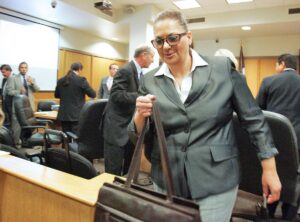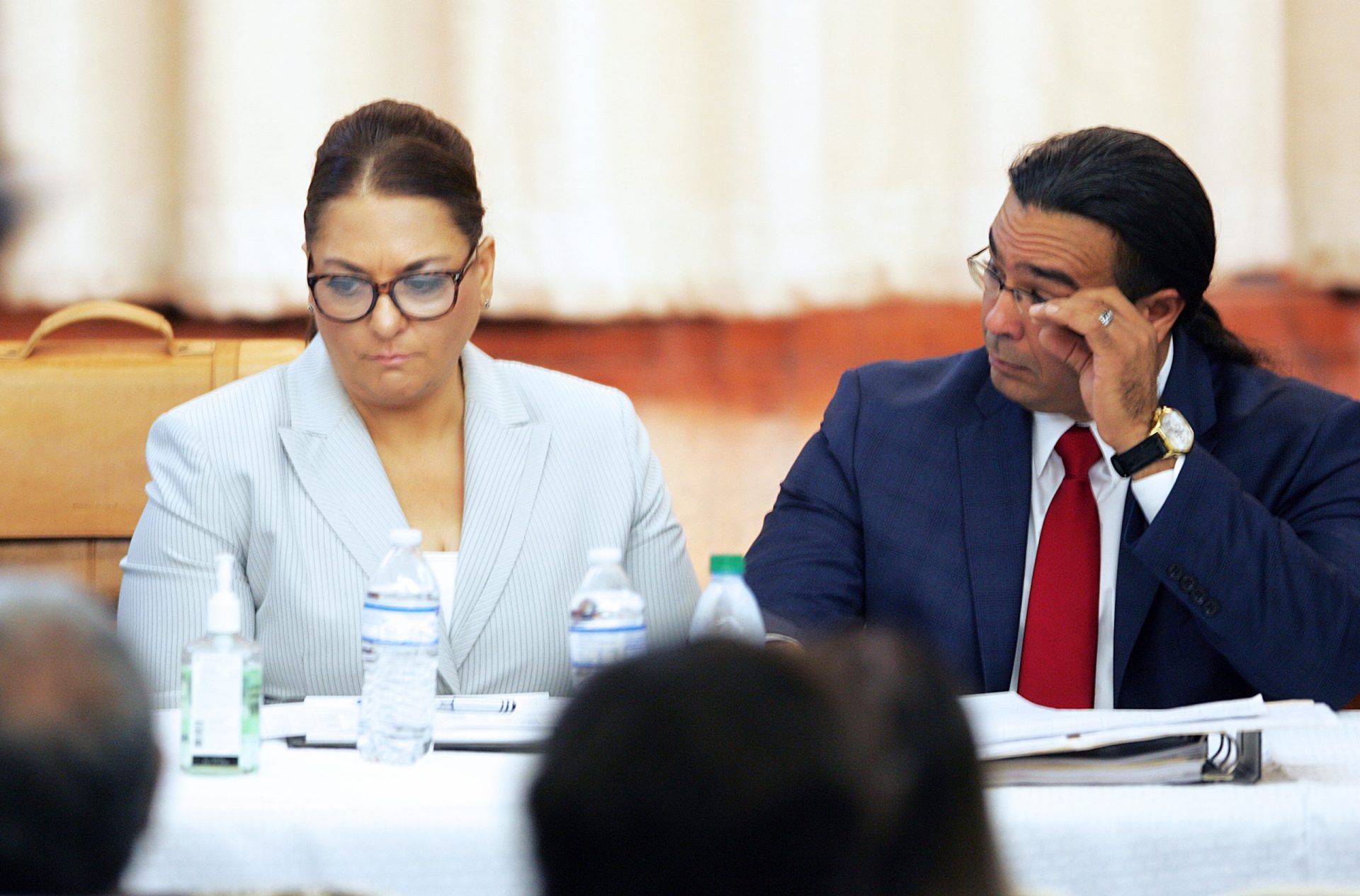|
Only have a minute? Listen instead
Getting your Trinity Audio player ready...
|

A state district judge has recommended that an appeal filed by Monica Melissa Patterson that argues new medical evidence exonerates her of the murder of a 96-year-old man be denied.
Judge Noe Gonzalez filed his facts and findings and conclusions of law on Friday following a flurry of activity in the appeal that has occurred over the last two weeks.
That includes the Innocence Project of Texas filing a brief in Monica Melissa Patterson’s appeal, which has been remanded to the trial court on a claim of new medical evidence that her appellate attorneys say shows that her 96-year-old victim was not asphyxiated, but instead died from a heart attack.
The organization, which has been involved in more than 20 exonerations in Texas, however, is not taking a position on the guilt or innocence of Patterson, 56, who is serving life without parole after being convicted following a six-week trial in 2017 over the Jan. 28, 2015 death of Martin Knell.
Instead, the Innocence Project of Texas argues in the brief that forensic pathologist Norma Farley’s testimony should not have been admitted during the trial “because her opinions on cause and manner of death were not sufficiently based on scientific, technical, or other specialized knowledge as required by Texas Rule of Evidence 702, and were therefore, not helpful to the jury.”
That motion was filed Tuesday. The next day, both Patterson’s appellate attorney and attorneys with the Hidalgo County District Attorney’s Office filed proposed findings of fact, conclusions of law and recommendations.
Those documents are not accessible to the public through the county’s online court records website.
Patterson’s case was remanded to the trial court by the Texas Court of Criminal Appeals in July 2022 and Farley’s testimony is an integral aspect of Patterson’s appeal.
During her trial, prosecutors said Patterson, who formerly served as director of the Comfort House, a McAllen-based nonprofit that provides hospice care, made friends with Knell before gaining access to his bank accounts, getting power of attorney and becoming executrix of his will — all over the span of four months.
She was also convicted of stealing more than $100,000 from the Comfort House and trying to take more than $200,000 from Knell.
Her co-defendant, Angel Mario Garza, who has since recanted his confession, pleaded guilty to strangling Knell and is serving a 45-year prison sentence.
As for the Innocence Project of Texas brief, it mirrors arguments made in Patterson’s brief regarding Farley’s testimony.

“Specifically, Farley concluded the deceased’s cause of death was ‘asphyxia by suffocation,’ and manner of death was ‘homicide’ based on lay witness statements despite Farley admitting she could not rule out other causes and made no independent medical finding at autopsy to corroborate suffocation,” the brief stated. “Such testimony has been a factor in wrongful convictions in Texas.
“It is harmful because it gives a misleading stamp of scientific certainty to lay witness statements when an expert is otherwise prohibited from commenting on witness credibility.”
In Patterson’s appeal, her attorneys challenge Farley’s testimony as well, saying she based her cause of death opinion on statements made by two lay witnesses, law enforcement, cellphone tower information and Garza’s confession.
“The medical evidence indicates Mr. Knell’s death was a result of sudden cardiac arrest and other natural causes, Yet, the State offered no medical or physical evidence to substantiate their forensic pathologist’s conclusion that his death was a homicide,” the appeal stated.
That document said that Farley’s opinion was rife with confirmation bias and uncorrected false medical testimony.

“In fact, it wasn’t medical testimony at all. It was a regurgitation of Mario Garza’s alleged confession, and junk cellphone tower science,” the appeal stated.
Patterson’s attorney also hired forensic pathologist Judy Melinek, who offered a conflicting opinion after reviewing Knell’s autopsy report and photos, the police incident report, the 911 call and transcript, medical and embalming records, Garza’s affidavit, witness statements and trial testimony.
As for the alleged junk cellphone tower evidence, a private investigator named David T. Gallant, who was hired by Patterson’s attorneys, is of the opinion that the investigator who conducted the initial investigation did so incorrectly.
Gallant, who is also a computer forensic expert, believes Patterson and Garza were five miles south of Knell’s home at the time of his death.
In his recommendation, Gonzalez, the judge, said he is of the opinion a hearing is not needed.
His recommendation will go to the Texas Court of Criminal Appeals, which remanded the case to him.
Editor’s note: This story was updated with a new development about a judge recommending to deny the appeal.




